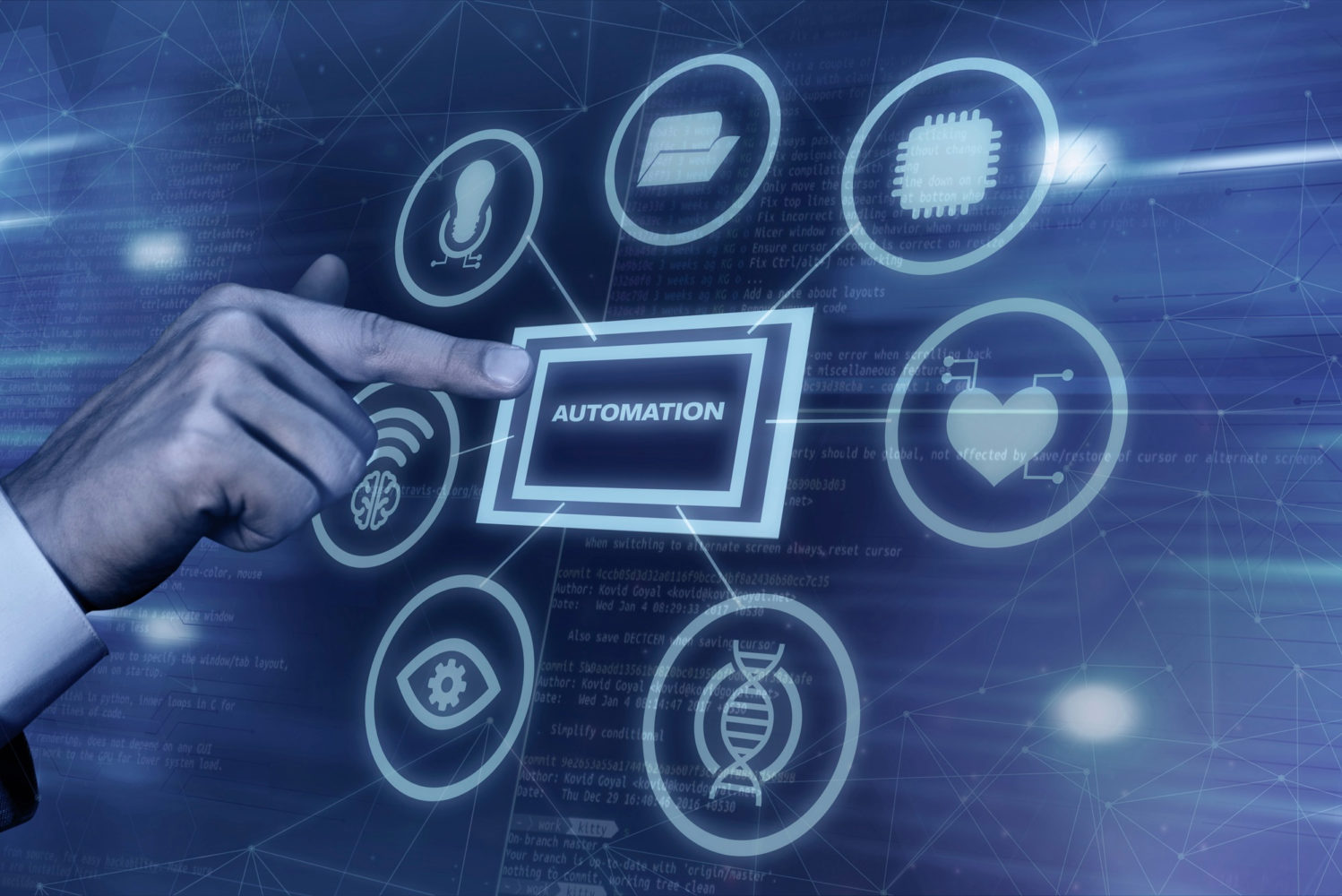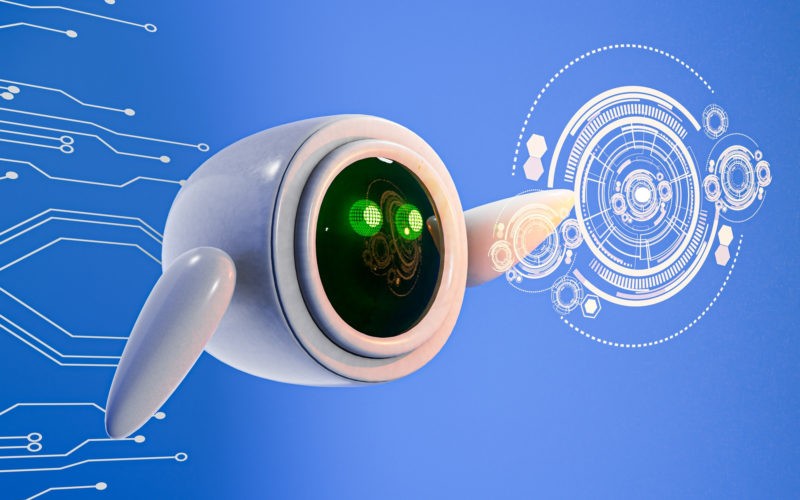Have you ever wondered what makes services like Netflix recommendations or Amazon Alexa so smart? Or how do cars like Tesla drive themselves? The answer lies in a powerful trend that’s reshaping our world: AI automation. But what exactly is AI automation, and why is it becoming a buzzword across industries?
AI automation refers to machines performing tasks that typically require human intelligence, thanks to technologies like machine learning, robotics, and natural language processing. It’s not just about robots; it’s about integrating intelligent technology into everyday tasks to make them more efficient.
Now, why is AI such a big deal? Imagine having a personal assistant who never sleeps, eats, or takes breaks and can process information faster than any human. That’s the power of AI automation. It’s encouraging businesses to operate round the clock, reduce human error, and deliver personalized services at a scale never seen before.
AI’s impact is profound, from healthcare to finance and manufacturing to customer service. In healthcare, AI helps diagnose diseases quicker and with greater accuracy. In finance, it’s used for everything from fraud detection to advising on stock trades. Manufacturers use AI to predict when machines need maintenance before breaking down. Virtual assistants can handle many inquiries simultaneously in customer service, ensuring no customer waits too long.
So, what does this mean for industries and the people working in them? And, how are businesses leveraging this technology to stay ahead? And what are the potential pitfalls they need to watch out for? Let’s go deeper into the world of AI automation and discover how it’s not just changing the way we work but the way we live.
Understanding AI Automation

AI automation is like giving a computer a brain, not just any brain, but one that can learn, adapt, and make decisions. This “brain” uses several remarkable technologies. Let’s take a quick look:
- Machine Learning (ML): This is like teaching a computer to learn from past experiences. It looks at data and learns patterns, making it smarter over time. For example, when Netflix recommends movies you might like, it uses ML to guess based on movies you’ve watched.
- Robotics: Think of robots in car manufacturing plants, these are not just robots; they are equipped with AI. It makes them capable of performing complex tasks with high precision.
- Natural Language Processing (NLP): This technology helps computers understand and respond to human language. Every time you ask Alexa to play your favorite song, NLP is at work.
How is AI automation different from the old-school automation we’re used to?
Traditional automation is like a playlist; it’s predictable and doesn’t change. If you’ve ever seen a factory line assembling the same part over and over without any change, that’s traditional automation. It’s programmed to do repetitive tasks, following explicit instructions without deviation.
AI automation, on the other hand, is more like an intelligent DJ that adapts the music based on who’s at the party. It can adjust to new information, make decisions, and learn from new patterns or changes without explicit programming. This adaptability makes AI automation incredibly powerful, especially when flexibility and intelligence are crucial.
So, why is this important? With AI automation, businesses can tackle complex problems, adapt to changes quickly, and deliver personalized experiences, which were once thought impossible with traditional automation. This shift is not just about technology; it’s about reimagining what’s possible in every field, from medicine to customer service to logistics.
Key Drivers of AI Automation

Think about when you upgrade your phone and suddenly you can access the latest features and do things faster than before. Similarly, the rapid growth of AI automation is driven by some powerful factors changing the game for businesses and consumers alike. Let’s jump into what’s fueling this exciting trend!
1. Advancements in Technology and Increased Data Availability
Today, we have more data than ever. Every time you scroll through social media, shop online, or even use a fitness tracker, data is being collected. But what should we do with all this data? Thanks to technological advances, particularly in computing power and storage, we can now process, analyze, and utilize this vast amount of information more effectively. This is where AI data services play a vital role, helping organizations transform raw data into actionable insights that fuel smarter AI automation. This tech upgrade allows AI systems to learn faster and perform tasks more intelligently, making them smarter day by day.
2. Rising Demand for Efficiency and Scalability in Business Operations
Imagine you run a bakery and have an order for 1,000 cakes. Doing this manually might be fun for a few, but it’s a nightmare to scale up when orders increase suddenly. Businesses face similar challenges, and AI automation comes into play here, allowing them to handle large-scale operations smoothly without compromising quality. Whether managing thousands of orders, responding to customer queries, or maintaining records, AI helps do these tasks quickly and accurately, 24/7.
3. Cost Reduction and the Push for Innovation
No one likes to spend more if they can achieve the same results for less, right? AI automation helps cut down costs significantly. For instance, using AI in supply chain management can reduce transportation costs, minimize storage needs, and lower waste. Moreover, by automating routine tasks, businesses can allocate their budgets to more critical areas like innovation and research, driving them to create new products and services that can change the market landscape.
Each of these drivers pushes AI forward and encourages industries to rethink how they operate. It isn’t just about replacing old methods but transforming them in ways that can lead to smarter, more efficient, and more innovative outcomes. As businesses continue to use these drivers, the role of AI automation will only grow, making it an exciting area to watch. Are you curious to see how this plays out in various industries? Let’s explore that next!
Role of AI Automation in Various Industries
AI automation isn’t just a cool concept from sci-fi movies; it’s making a big splash across various industries today. Let’s examine how AI is shaking things up in manufacturing, healthcare, finance, and retail. Each sector is experiencing its revolution, thanks to AI stepping in and turning things up a notch.
Manufacturing: Supercharging Production
In the world of manufacturing, AI automation acts like the ultimate multitasker. Imagine a factory where machines learn from each mistake, never making the same one twice, this is where AI shines. It speeds up production, letting factories make more of your favorite gadgets in less time. And because AI is so good at learning, it also reduces errors, which means fewer faulty products and less waste. But that’s not all; imagine getting a product made just for you. AI can tailor the manufacturing process to create personalized products. It makes each item special without slowing the production line.
Healthcare: A Dose of Speed and Precision
AI in healthcare is like having a super-smart helper who never gets tired. It can sift through massive amounts of medical data in seconds, helping doctors diagnose diseases quickly and accurately. This tech isn’t just about speed; it’s also about precision. Managing patient records becomes a breeze, ensuring no detail is missed. Plus, AI helps in crafting personalized treatment plans. Consider it as receiving care tailored just for you, considering your unique health profile.
Finance: Smarter and Safer Transactions
In finance, AI is a brainy analyst and a vigilant watchdog. It engages in algorithmic trading, making fast, informed decisions about buying and selling stocks much quicker than any human could. When it comes to keeping your money safe, AI is always looking for unusual patterns that might suggest fraud, helping prevent your hard-earned money from falling into the wrong hands. Also, automated customer service via chatbots and virtual assistants means your financial queries get resolved anytime, without waiting in long phone queues.
Retail: Revolutionizing Shopping
Ever wondered how online stores seem to know exactly what you want? That’s AI at work! In retail, AI revolutionizes how shops manage their inventories, ensuring they’re stocked up on the items customers really want. More than just stock keeping, AI predicts shopping trends by analyzing customer behavior and helping stores customize marketing strategies. And for shoppers, AI means personalized shopping experiences, receiving product recommendations that feel like they were handpicked by a close friend who knows your taste and preferences.
Benefits of AI Automation
Imagine having a superpower that lets you do more, make fewer mistakes, and grow your efforts without breaking the bank. Sounds like a dream, right? Well, that’s pretty much what AI automation offers in the real world. Let’s dive into some of the standout benefits that AI brings to the table.
Supercharged Efficiency and Productivity
First up, AI is like a turbo boost for productivity. With AI, tasks that used to take hours can be done in minutes. For example, think about sorting emails or scheduling appointments; AI can handle these tasks effortlessly, freeing up your time to focus on more important things. It’s like having a super-efficient assistant who’s always on top of things, ensuring that mundane tasks and complex projects move faster and smoother.
Sharper Accuracy and Smarter Decisions
Next, AI isn’t just fast; it’s also incredibly sharp. By processing vast amounts of data and learning from outcomes, AI helps reduce errors and make more accurate predictions. Whether forecasting sales for the next quarter or predicting weather patterns, AI provides insights based on data, not hunches. It leads to smarter decision-making in businesses, science, healthcare, and more, helping experts make well-informed choices quickly and confidently.
Scaling Up Made Easier
One of the biggest challenges in business is scaling up operations. As your business grows, so do your time and resources demands. Here’s where AI steps in. AI can handle increasing tasks or data without proportionally increasing the resources spent. For instance, an AI system designed to handle customer service can manage a few queries per day or thousands without needing to hire more staff. This scalability means businesses can expand their services or products without a corresponding cost spike.
Challenges and Considerations
While AI automation sounds like all sunshine and rainbows, it’s not without its share of challenges. As with any major technological advancement, there are some tricky issues we need to navigate. Let’s talk about some of these hurdles and what they mean for us.
Navigating the Job Landscape
One of the biggest concerns with AI is job displacement. What happens to human workers when robots and AI systems can do many jobs faster and more efficiently? It’s a valid worry. Some roles, especially those involving repetitive or simple tasks, will likely be affected. However, this shift also opens up opportunities for new jobs focusing on managing, programming, and maintaining AI systems. The key here is adaptation: retraining and educating the workforce for this new landscape where humans and AI work side by side.
Ethical Questions in AI Decisions
Have you ever thought about who’s responsible if an AI makes a wrong decision? Or how an AI should balance privacy with convenience? These ethical questions are at the forefront as AI becomes more integrated into our lives. AI systems often make decisions based on data fed into them, which can sometimes lead to biased outcomes if the data is flawed. Addressing these issues involves continuous monitoring, transparent practices, and integrating ethical considerations into AI development processes.
Technical Hiccups: Privacy and Security
With great power comes great responsibility, especially when handling data. AI systems require vast amounts of data to function effectively, which raises concerns about privacy and security. How do we ensure that sensitive information isn’t misused or accidentally leaked? Protecting this data against hacks and unauthorized access is crucial. It involves implementing solid data encryption, regular security audits, and transparent data usage policies to safeguard personal and corporate information.
Future Trends and Predictions
As we zoom into the future, AI automation isn’t just sticking around; it’s set to become even more revolutionary. The next wave of AI integration looks exciting, with new technologies joining the mix and broader impacts on society and industries. Let’s unpack some trends and predictions that could define the next era of AI automation.
Teaming Up with IoT and Blockchain
Imagine your smart home devices, like your fridge, thermostat, and lights, talking to each other and making smart decisions on their own! This is where the integration of AI with the Internet of Things (IoT) comes into play. AI can analyze the data from these devices to optimize energy use or even order groceries when you’re running low. Now, throw blockchain into the mix, and you have a super secure way of managing all this data. Blockchain can help ensure that the data exchanged between devices is safe and tamper-proof. It makes the system more reliable and secure.
AI Champions Sustainability
In a world conscious of the environment, AI is stepping up as a sustainability champion. How? By helping companies and cities become more energy-efficient and reduce waste. AI can optimize routes for delivery trucks to save fuel, manage energy use in large buildings, and even monitor water systems to detect and fix leaks early. AI is helping pave the way toward a greener planet by making processes smarter and more efficient.
Case Studies
Bringing theory into practice, let’s explore some real-world examples of AI automation being a game-changer across different sectors. These examples showcase AI’s versatility and highlight its impact on boosting efficiency, enhancing customer service, and refining supply chain operations.
Revolutionizing Manufacturing: Tesla’s Automation Triumph
Tesla, a pioneer in electric vehicles, heavily utilizes AI and automation in its manufacturing processes. At Tesla’s factories, AI-driven robots handle critical tasks such as battery placement and welding, which are pivotal for the assembly line’s efficiency and precision. This integration of AI has enabled Tesla to scale production while maintaining high standards of quality and safety. For example, Tesla’s Gigafactory in Nevada is the epitome of AI-driven automation, helping Tesla achieve its goal of producing 500,000 cars annually.
Transforming Customer Service in Banking: JPMorgan’s COIN
JPMorgan Chase introduced an AI program named COIN (Contract Intelligence) to automate the analysis and interpretation of commercial loan agreements. This task previously consumed 360,000 hours of work each year by lawyers and loan officers. COIN completes these tasks in a fraction of the time and with fewer errors than human counterparts. This automation has enhanced the efficiency of document handling and customer service. It provides quicker turnaround times for client inquiries and loan processing.
Streamlining Retail Supply Chains: Amazon’s AI Logistics
Amazon, a global leader in retail, harnesses AI to revolutionize its supply chain and logistics operations. AI algorithms help predict buying patterns, optimize inventory and warehouse placements, and manage effective shipping routes. One standout innovation is Amazon’s Kiva robots, now rebranded as Amazon Robotics, used in warehouses to pick and pack orders. These robots reduce processing time and increase the efficiency of fulfilling customer orders. This AI-driven approach enables Amazon to promise and deliver rapid shipping times, including the coveted Prime two-day delivery.
Conclusion: Embracing the Future with AI Automation
As we wrap up our journey through the fascinating world of AI automation, it’s clear that this technology isn’t just a wave passing through; it’s a terrific force reshaping how businesses operate and how we go about our daily lives. From super-efficient manufacturing lines to personalized healthcare and responsive customer service, AI is making its mark everywhere. But what does this mean for businesses and individuals moving forward?
AI automation has shown us that it can do more than just streamline operations; it can revolutionize them. By adopting AI technologies, companies are improving efficiency and creating innovative solutions that were once thought impossible. The role of AI App Development Companies becomes crucial here, as they are the architects behind these intelligent solutions, turning complex AI capabilities into user-friendly applications and services.
For businesses, staying ahead in the market means being open to change and ready to invest in new technologies. AI automation offers a golden opportunity for growth, innovation, and competitiveness. Whether it’s through improving current processes or exploring new avenues of service and product development, the integration of AI can deliver substantial benefits.
AI’s future trajectory will be as terrific as its current path. With advancements in AI app development, we can expect even more tailored and intuitive applications that enhance business operations and everyday life. Imagine an AI that manages your home or office environment and helps make critical business decisions or even manages city-wide traffic systems. The possibilities are limitless.
As AI continues to evolve, the role of businesses and developers will be crucial in shaping how ethically and effectively this technology is integrated into our daily routines and professional operations. So, whether you’re a startup, an established enterprise, or just someone fascinated by the potential of AI, now is the time to explore, adapt, and invest in AI technologies. Ready to take part in shaping a smarter future? The journey with AI is just beginning, and it promises to be an exciting one!












